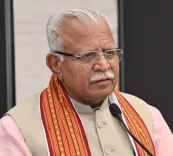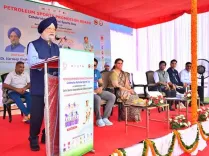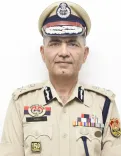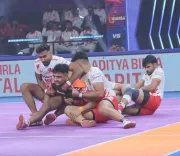Who Was Convicted in the Murder Case of Journalist Rajdev Ranjan?
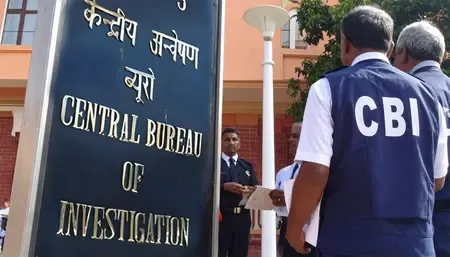
Synopsis
Key Takeaways
- The Special CBI Court convicted three individuals in the Rajdev Ranjan murder case.
- Rajdev Ranjan was shot dead in Siwan in 2016.
- Initial suspicions were directed at Mohammad Shahabuddin, who passed away during the pandemic.
- The case highlights the challenges faced by journalists in India.
- Sentencing for the convicted individuals is forthcoming.
Patna, Aug 30 (NationPress) Nearly a decade after the tragic assassination of senior journalist Rajdev Ranjan in Bihar's Siwan, the Special CBI Court in Muzaffarpur delivered its verdict on Saturday, convicting three individuals while acquitting three others.
On May 13, 2016, Rajdev Ranjan, then the bureau chief of a prominent Hindi daily, was fatally shot in Siwan as he returned from a hospital visit. The assailants struck him with two bullets, which resulted in his immediate death.
His wife, Asha Yadav, promptly filed an FIR at the Siwan Town police station, with initial suspicions directed towards the incarcerated RJD figure and former Siwan MP Mohammad Shahabuddin. However, charges were later brought against other suspects.
The case was subsequently transferred to the CBI, which issued a chargesheet against seven individuals, excluding Shahabuddin, who was considered the primary suspect but passed away during the COVID-19 pandemic.
The trial focused on six defendants - Azharuddin alias Laddan Mian, Rohit Kumar Soni, Vijay Kumar Gupta, Sonu Kumar Gupta, Rajesh Kumar, and Rishu Kumar Jaiswal.
One suspect was classified as a juvenile, with his case being adjudicated separately.
After nearly eight years of legal proceedings, in which the CBI scrutinized 69 witnesses and presented 111 pieces of evidence, District and Additional Sessions Judge-3 Namita Singh announced the ruling.
According to the judgment, Azharuddin alias Laddan Mian, Rajesh Kumar, and Rishu Kumar Jaiswal were acquitted, while Vijay Kumar Gupta, Sonu Kumar Gupta, and Rohit Kumar Soni were found guilty.
Defense attorney Sharad Sinha informed the media that the court acquitted three defendants due to insufficient evidence, while the remaining three were convicted of the journalist's murder.
This notable case, previously associated with Shahabuddin's political influence in Siwan, was initially heard in the Special Court (MP/MLA cases) in Patna before being relocated to the CBI Court in Muzaffarpur.
The sentencing phase for the three convicted individuals is anticipated in the near future.

